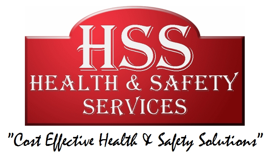Monthly Archives: October 2013
01 Oct |
First Aid Regulations – 3rd Amendment 2013 |
As of 1 October 2013, the Health and Safety (First Aid) Regulations 1981 have been amended (3rd Edition), removing the requirement for HSE to approve first aid training and qualifications (regulation 3(2)). All in all this small change means that businesses now have more flexibility in who you engage to conduct training sessions on your behalf and how you manage the provision of first aid in the workplace.
An employer will still need to make an assessment of their first-aid requirements to establish what provision for first aid is required. This will depend upon the workplace, taking into account, the number of employees, size, location and work activity (plus other factors).
HSE have published the Health and Safety (First Aid) Regulations 1981 (3rd Edition) which can be downloaded from here.
Book your First Aid Training requirements at HSS Health & Safety Services by clicking here.
Published Date: 1st October 2013
Category: Uncategorized
01 Oct |
Electricity At Work: Safe Working Practices – HSG85 3rd Edition |
The Electricity at Work Regualtions have been amended and published.
The new Regulations provide updated guidance and additional information on requirements for all persons who carry out work on/ with Electricity.
A copy of the new Regulations can be downloaded from here
Published Date: 1st October 2013
Category: Uncategorized
01 Oct |
Reporting of Injuries, Diseases and Dangerous Occurrences Regulations 2013 (RIDDOR) – New |
The HSE have implemented changes to RIDDOR in order to simplify the mandatory reporting of workplace injuries, diseases and dangerous occurrences for all businesses.
Changes to the Reporting of Injuries, Diseases and Dangerous Occurrences Regulations (RIDDOR) 1995 have been made to calridy and simplify the reporting requirements, whilst ensuring that the data collected provides an accurate and useful picture of workplace incidents.
The change affects all employers including Self Employed.
The main changes are:
The classification of major injuries to workers has been replaced with a shorter list of specified injuries
The existing schedule detailing 47 types of industrial diseases have been replaced with just eight categories of reportable work related illness
Fewer categories of dangerous occurrences which require reporting
There are no significant changes to the reporting requirements and therefore the following is still required on each occassion:
Fatal Accidents Details
Accidents to non-employed persons including members of the public
Accidents resulting in a worker being unable to perform their normal range of duties for more than seven days
How an incident at work is reported and the criteria that determines whether an incident should be investigated
All accidents require a thorough investigation, no matter how minor, to prevent any re-occurrence. It is proven to be more cost effective by acting responsibly and pro-active and not re-active as costs for injured employees, lost time, fewer resources, fines and legal costs can multiply to excessive amounts.
RIDDOR compliance is a legal requirement for all companies. There are no changes to the method of reporting incidents at work and the principles of the Regulations remain the same.
A new HSE brief guide has been produced to help provide advice for managers which can be downloaded from here
The full RIDDOR 2013 document can also be downloaded from here – (This is the final document but has not yet been produced into a hard format)
Reporting an accident, injury and/or dangerous occurrence – please follow this link to the HSE Reporting page
Published Date: 1st October 2013
Category: Uncategorized


